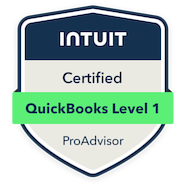Scaling Your Property Management Business Starts with Better Bookkeeping
If you're trying to scale your property management business, your books need to keep up. In this post, I break down key habits, tools, and strategies that can turn your financials into a growth engine
6/30/20252 min read


1. Want to Grow Your Portfolio? Start with Your Numbers
Clear financials are the foundation of smart growth. Accurate bookkeeping gives you full visibility into income, expenses, cash flow, and forecasts—allowing you to make strategic decisions and avoid costly surprises.
2. Confident Decisions Come from Clean Books
Well-organized financial reports help you understand your true profitability, evaluate investment performance, improve budgeting, and prepare for capital gains taxes without stress.
3. Common Growing Pains in Property Management
When you're scaling, bookkeeping gets tricky. Security deposit reconciliations, duplicate entries, and unclear categorization can cause delays, tax issues, and reporting headaches.
4. Build a Solid Foundation Early On
Dedicated bank account: Keep your rental income and expenses separate to simplify reconciliation and prepare for financing or audits.
Customized chart of accounts: Track rent, late fees, repairs, utilities, and more with precision—spot trends and outliers quickly.
5. Choose the Right Accounting Method
Cash or accrual? Pick what fits your strategy and stay consistent. Use professional tools, process invoices promptly, and keep digital records to back every transaction.
6. Automation Saves You Hours Every Week
Software like AppFolio, QuickBooks, or Xero lets you auto-sync rent payments, generate monthly reports, track expenses, and even snap receipts with your phone. That’s time back in your day.
7. Smarter Rent Collection with Tech
Modern platforms automatically split rent payments across categories (like rent, late fees, deposits), eliminating manual errors and keeping your records investor-ready.
8. Mastering Cash Flow is Non-Negotiable
Track what’s coming in and going out. Monitor unpaid rent, upcoming bills, and reserve funds. A clear picture of your liquidity helps you act fast when opportunities—or problems—arise.
9. Create a Safety Net
Unexpected repairs or tenant move-outs shouldn’t break you. Build and track a reserve fund inside your books, so you're always one step ahead.
10. Make Financial Checkups a Monthly Habit
Review your financials monthly to catch errors and spot red flags.
Watch for trends: rising delinquency, late fees, or dropping NOI.
Work with professionals when needed—especially during rapid growth.
11. The Right Tools Make Scaling Easier
Pick accounting software that works with property management—QuickBooks, AppFolio, Buildium, or Xero. Look for features like rent tracking, automation, and easy reporting.


